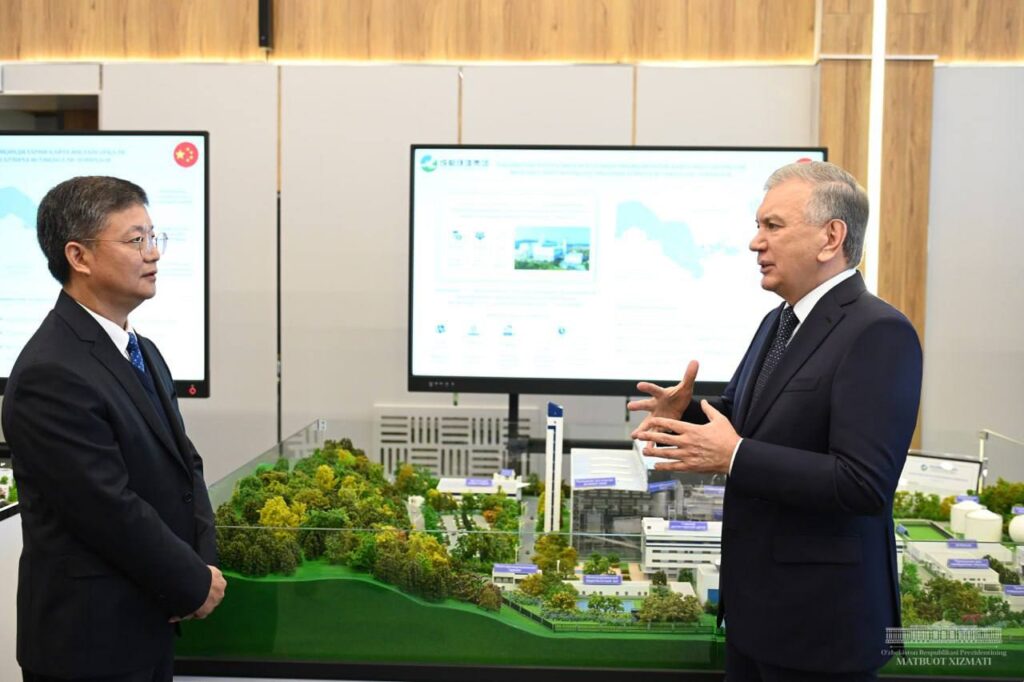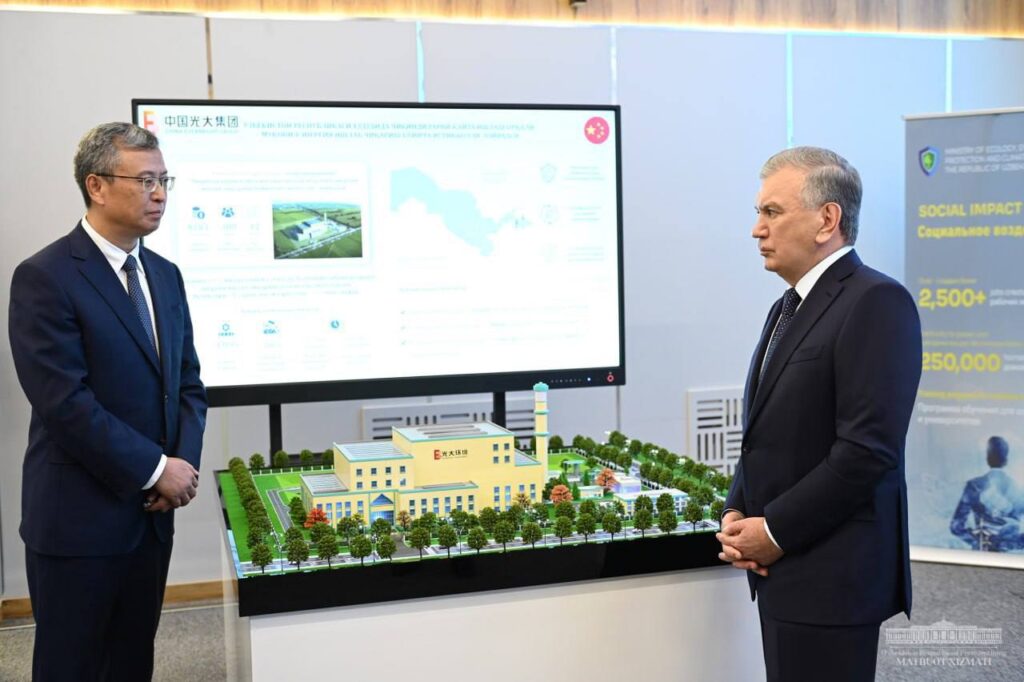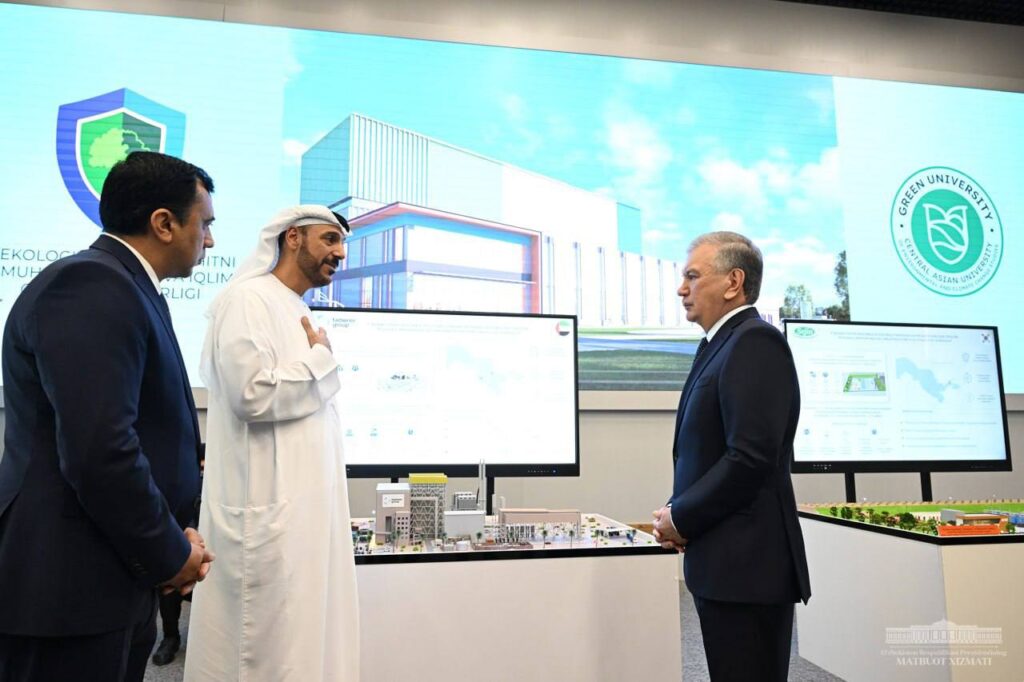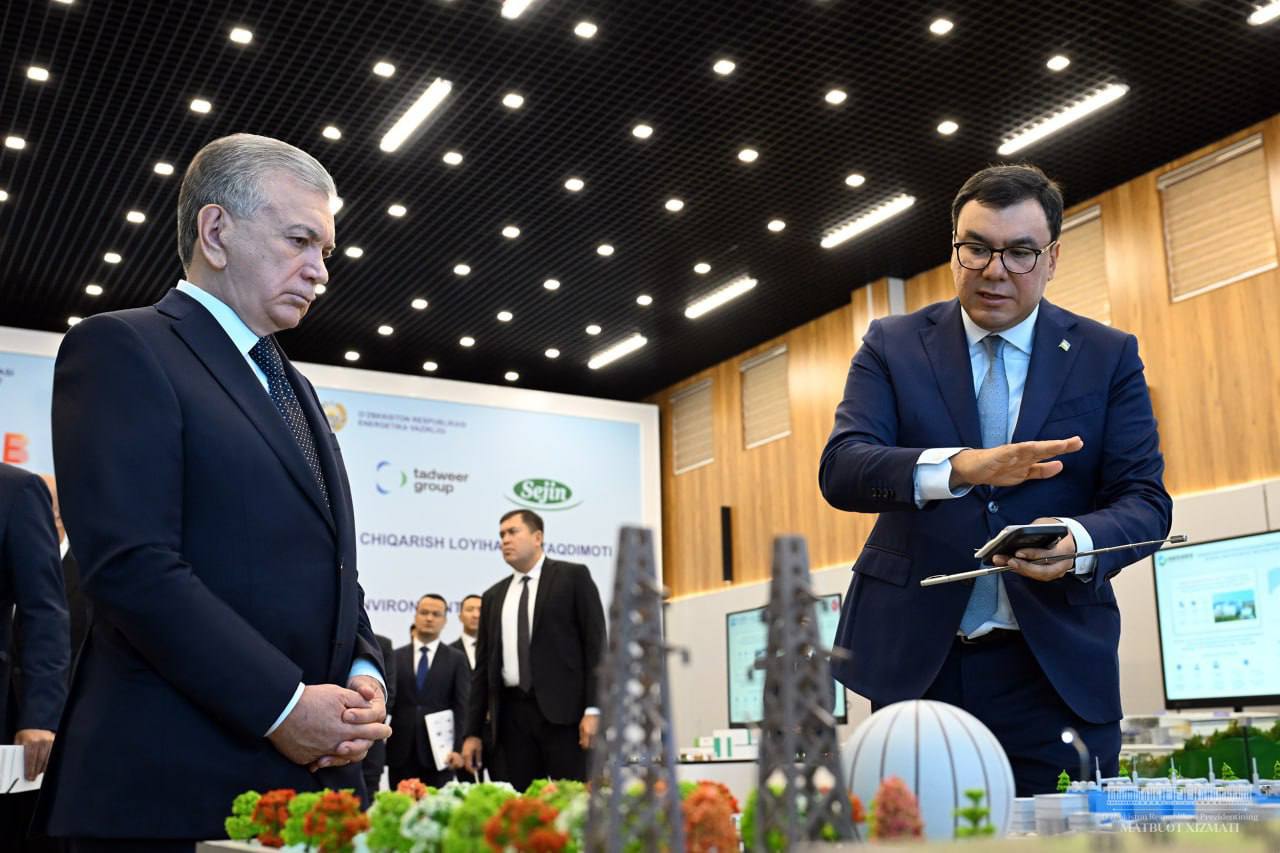This article is also available in:
Русский (Russian)
Uzbek
Today, President of Uzbekistan Shavkat Mirziyoyev was presented with projects for the construction of eight large waste processing plants that will be built with the participation of foreign investors. These measures are necessary because the country generates around 14 million tons of waste annually, of which only 4–5% is recycled. As a result, more than 7 million tons of greenhouse gases and 43 thousand tons of leachates produced at waste disposal sites are released into the atmosphere and penetrate the soil, significantly worsening the environmental situation.



Recycling waste will help reduce its negative impact on the environment and also generate economic benefits. The Ministry of Ecology, Environmental Protection, and Climate Change, together with foreign investors, has developed projects for the construction of 8 waste incineration plants, as well as for processing landfill gas at the Akhangaran landfill. The total investment in the projects is approximately $1.3 billion.
Major Projects
- The Chinese company CAMC Engineering will invest $350 million in the construction of two plants in the Andijan and Tashkent regions. These plants will process 4,000 tons of waste per day and generate 630 million kilowatt-hours of electricity annually.
- The company Shanghai SUS Environment from China will invest $310 million in the construction of two plants in the Samarkand and Kashkadarya regions. These facilities will process 3,000 tons of waste per day and generate 480 million kilowatt-hours of electricity annually.
- Tadweer Group from the UAE will invest $200 million in the construction of a plant for the Bukhara and Navoi regions. The plant will process 1,500 tons of waste per day and produce 363 million kilowatt-hours of electricity annually.
- The South Korean company Sejin will invest $55 million in a project to generate electricity from landfill gas at the Akhangaran landfill in Tashkent region. The plant is expected to produce 16 megawatts of electricity.
Expected Results
The implementation of these projects will ensure the efficient use of solid waste and annually recycle more than 4.7 million tons of waste, generating 2.1 billion kilowatt-hours of electricity, valued at $97 million. This will also save 152 million cubic meters of natural gas and reduce greenhouse gas emissions by 2.4 million tons. As a result, 1,200 new jobs will be created.
The projects are planned to be implemented between 2025 and 2027 in the Andijan, Bukhara, Jizzakh, Kashkadarya, Navoi, Namangan, Samarkand, Syrdarya, Fergana, and Tashkent regions, as well as in Tashkent city.
Shavkat Mirziyoyev Emphasized the Importance of These Projects
“This is not just about building plants, but addressing one of the most critical issues. The suitability of our lands and water, public health, air quality, and energy stability depend on this sector. If waste is properly collected and more recycled, the ecological balance will improve, nature will become cleaner, and society will change,” the president stated.
The president instructed responsible officials to make these projects exemplary and to expand their number across the regions.
Furthermore, investors were encouraged to establish new construction material and organic fertilizer enterprises near the waste processing plants to efficiently use the energy and resources.
Additionally, a “roadmap” has been outlined to increase the number of such projects and ensure their balanced development in all regions.
The article may contain inaccuracies as it is translated by AI. For more details, please refer to the Russian version of the article. If you notice any inaccuracies, you can send corrections via the Telegram bot: Uzvaibik_bot.

